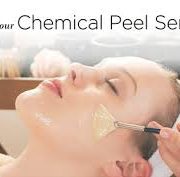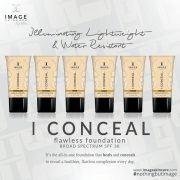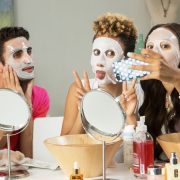Myths & Truths About Chemical Peels and Skin Resurfacing – Facials Fort Lauderdale Spa Florida
When patients hear the words “chemical peel” they have many different thoughts as to what the actual outcome will bMe. Due to a lot of misinformation readily available on the internet and in the general media, chemical peeling can make people nervous. It is the clinician’s responsibility to explain treatment outcomes and why they may vary. Discussing patient expectations during the initial consultation to clear up any misconceptions surrounding chemical peels ensures a positive experience for both the patient and the clinician. Our philosophy incorporates a progressive, rather than aggressive, approach. This way, patients will experience little or no downtime following a peel, yet still achieve outstanding results.
PCA SKIN’s peels are self-neutralizing, leaving patients with little to no downtime following treatment.
myths and truths about chemical peels and skin resurfacing
Skin should “peel” after having a peel treatment
As clinicians, many of us have had the experience of treating a patient with a chemical peel, after which they come back to you and say, “Your treatment didn’t work because I didn’t peel.” Visible exfoliation doesn’t determine the efficacy of treatment. Generally, healthy skin has less visible exfoliation. Exfoliation often takes place at the cellular level and is not always apparent to the naked eye. Conversely, some patients’ skin is so impacted that it can take a few peels to loosen dead cells enough to allow them to shed. Typically, these patients will see little or no peeling initially, and then see sloughing after a few treatments. Using analogies that a patient can relate to can be an incredibly useful tool when explaining to a patient why they may not peel. For example, feeling drowsy after taking pain medication is a side effect, just as peeling is a side effect to a chemical peel; some people may feel drowsy when taking the medication and some may not, just as some may experience exfoliation from a peel and some may not – either way, the efficacy of the medication or peel is not contingent on the side effect.
My skin is too sensitive for a chemical peel
Sensitive skin is defined as a heightened intolerance to topical products or external factors. Sensitive Skin presents itself as red, irritated or scaly. PCA SKIN utilizes ingredient blends to combat sensitive skin presentations. Our philosophy follows the low-dose approach; meaning, inducing the least amount of trauma to the skin to achieve optimal results. Sensi Peel® is formulated primarily for extremely sensitive skin types. This multi-faceted treatment also provides calming and soothing properties and helps to clear follicle debris, making it an excellent choice for helping sensitive skin types. Hydrate: Therapeutic Oat Milk Mask was strategically formulated to soothe and hydrate impaired skin conditions of all kinds. Oat milk is also a potent antioxidant that effectively manages dry or sensitive skin conditions.
All peels must be neutralized
Straight alpha hydroxy acid (AHA) peels, such as glycolic and lactic acid, require neutralization with either water or a weak base like sodium bicarbonate. Unfortunately, the neutralization process can free hydrogen and, therefore, reactivate the acid and increase the heat sensation and discomfort in the skin. This increases the potential for negative outcomes and side effects. However, peels such as the Jessner’s and trichloroacetic acid (TCA) peels, and retinol treatments do not require neutralization. The water and lipid content in the skin leads to self-neutralization of the aforementioned acids. PCA SKINcombines AHA acids with TCA or Jessner’s peels, along with ingredients like retinol, salicylic acid, antioxidants and calming and soothing agents in bases that provide excellent delivery systems. The synergy of these ingredients is such that the peels are self-neutralizing, allowing for maximum effectiveness with little or no downtime.
It’s fine to hit the gym after having a peel
The epidermis is comprised of several layers and when a chemical peel is applied, even if it’s very superficial, it can cause a separation of these layers. Any activity that induces heat and sweating, either from a work out, an athletic activity or sitting in the sauna, can cause water to become trapped between the epidermal layers. This may result in blistering and, depending on the severity of the blistering, lead to an uneven skin tone. Another reason to stay cool following a peel is that internal heat can also lead to uneven skin tone. PCA SKINrecommends remaining cool for 48 hours post-peel to avoid any heat-related complications post-treatment.
Acetone is best to prep skin for peels
Skin must be clean and degreased to maximize penetration of chemical peel solutions. While acetone is often used because it is a strong and biocompatible solvent, it is not ideal for pre-peel prep. Acetone not only removes excess sebum that hinders peel penetration, but it also over-strips skin of essential cholesterol and lipids. This can leave skin overly dry post-procedure and last for weeks following treatment, causing undue discomfort for patients. The lactic and citric acid base ofSmoothing Toner provides an astringent that gently and effectively removes any remaining sebum and debris post-cleansing, without drying out skin.
My patient can expect the same outcome each time they receive a peel
The amount of visible exfoliation depends on current skin conditions, combined with atmospheric conditions like humidity, which may cause flakes to adhere to the skin more so than in dry climates. Further, there may be a lot of visible exfoliation after the first treatment and less for the second, but this does not mean the first treatment worked better than the second. Moreover, someone who has previously had peel treatments may not have as much visible exfoliation as someone who has never or rarely gets treatments, as these patients will have more build-up. Everyone has a different tolerance for peels and that tolerance tends to grow with every treatment.
Peels are not indicated for drier skin types
A well-formulated chemical peel minimizes the amount of impacted skin cells lying on the surface of the skin while delivering hydrating, firming, strengthening and brightening ingredients into the skin. Once the skin is free of the dull surface layer, any products applied topically will penetrate better, leaving skin healthy and hydrated. PCA SKIN’s elegantly blended peels offer options for all Fitzpatrick types and skin conditions.
Frequency of treatments is not important
Regular in-office treatments are critical to maintaining optimal skin health. We recommend basing frequency of treatment on the condition. Uneven skin tone may be treated every three weeks and acne (all types) may be treated every two weeks. Sensitive skin may be treated every four weeks, while aging skin may be treated every three weeks.
A daily care regimen and sunscreen only matter if I have problem skin or I’m out in the sun all day
Along with receiving regular treatments from a clinician; a patient’s daily care regimen is just as important to maintaining skin health. Patients must manage their own skin at least twice a day; that’s 60 times in any given month vs. a single monthly treatment from a clinician. Therefore, one professional treatment won’t be beneficial if the patient is not doing his or her own part on a daily basis to maintain the health of their skin. Further, using a broad spectrum sunscreen is especially important post-peel as the procedure sensitizes skin to the sun. Remember, peels work at the cellular level and are still working long after you’ve had the treatment. Thus, it’s important to incorporate sun protection into your daily care regimen.
Peels are safe for patients with vitiligo
Vitiligo is an autoimmune disorder in which the body attacks its own pigment-producing cells (melanocytes), resulting in areas of depigmented skin. Because its presentation is on the skin, it makes sense that patients would think that chemical peels would help to “even out” skin tone. This, however, is untrue. Because this is an autoimmune disorder, treating it topically with a chemical peel will have little to no effect. While chemical peels are not the recommended course of action, there are other prescription medications and therapies available.
PCA SKIN originated advanced blended chemical peel formulations. Our vision is to improve people’s lives through our professional treatments for healthy, beautiful skin. PCA SKIN treatments and products are available exclusively through licensed skin health professionals that have been trained and certified by PCA SKIN.
Get the best facial service in Ft Lauderdale FL.
Award winning massage spa for relaxation and recovery. Call today!
Urban Retreat Spa is a Certified PCA Skin Treatments Protocol Facility.
Trust the experts.








